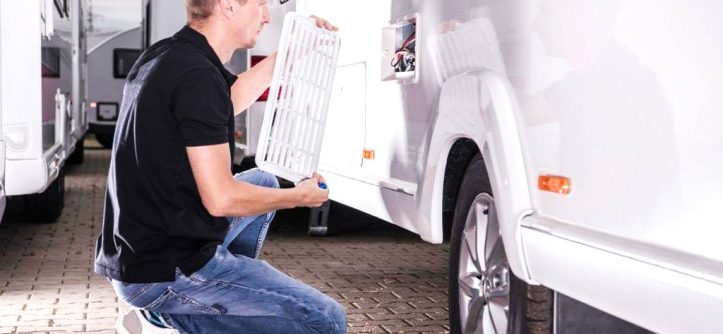RV accidents can happen anytime, so knowing how to handle an emergency is essential. With these RV emergency preparedness resources, you can stay safe and take action when needed. Getting your RV serviced on the road or at home meant disconnecting, traveling to a shop, and reconnecting. But mobile mechanics have made this more accessible than ever.
Get a Jump-Start
RVs are big, heavy vehicles that have complicated systems. They’re bound to break down occasionally, but you can keep your peace of mind by being prepared. GoHome Port RV Repair Service technicians that come to you can be an excellent option. They’re also more likely to be focused only on your RV, resulting in fewer mistakes and better quality repair. When finding an RV repair service that comes to you, ask around at your campground or read online reviews. There are websites devoted solely to publishing user reviews that can help you weed out the good from the bad. Just be sure to take them with a grain of salt — companies can edit or delete their reviews!
Get Out of Your RV
If a hurricane or high winds are on the way, it’s best to stay inside your RV until they pass. Check the National Weather Service to get alerts for your area. Take the necessary precautions like putting away outside furniture, securing all items on decks or patios, removing awnings, and turning off propane cylinders. Ensure your smoke alarm, fire extinguisher, and carbon monoxide detector work and have fresh batteries. It would help to clear the refrigerator and pantry to ensure you’re not coming home to spoiled food. Additionally, if you will be away for more than a few days, you should prepare your RV for storage. Research local RV mechanics and contact them to see if they can work on your specific RV.
Check Your Tires
When an RV tire leaks, it is essential to stay calm and take the time to check your tires and lug nuts. Doing this while the tire and rim are cold will help you spot the problem more efficiently. Listen for a hissing sound from the tire, indicating air is escaping. If you can’t hear it, feel around the tire to see if it has lost pressure. If you find a leak, spray a mixture of soap and water on the hole, making it easier to locate the hole. Once you’ve found the hole, use a rasp tool (it looks like a round file with a handle) to clean and roughen the area before plugging it.
Call for Help
RVs are more complex than cars, and they often require specialized knowledge and skills to handle. There are 11 million or more RVs on the road now, twice as many as 20 years ago, with a limited number of technicians available to address problems. In addition, RV parts are less standardized than car components. Some RVs have unique windows or trim; others feature floorplans with specific cabinetry or furniture that can’t be ordered from a generic warehouse. Some RV dealerships and mobile technician services can help. A few essential hand tools should be a part of every RVer’s emergency kit. A wrench set (adjustable, combination, and torque), pliers, wire strippers, duct tape, and a flashlight are all helpful for troubleshooting issues that may arise while traveling. A portable tire inflator and a tire repair kit are essential for quick fixes on the go. A non-combustible tire sealant will help you get moving until you can locate a place to make a permanent fix. Antihistamines are also a must for any RV emergency kit. Severe allergic reactions cannot wait until you find a store, so having this cheap but vital medication on hand will keep your family safe. Practicing an escape plan will also help in the event of a fire or other disaster that threatens your safety while on the road.
Tags: emergency rv repair near me, rv repair near me




Leave a Reply